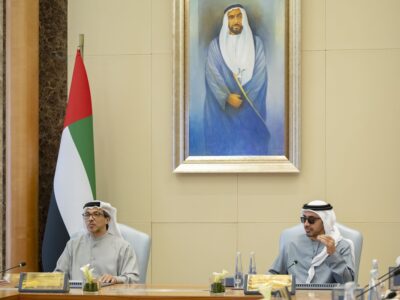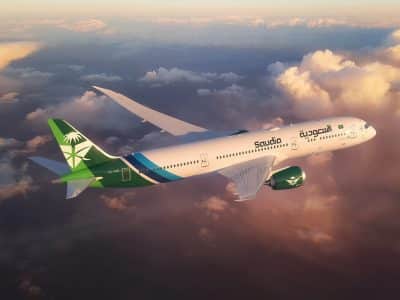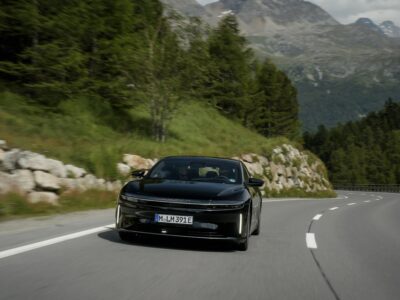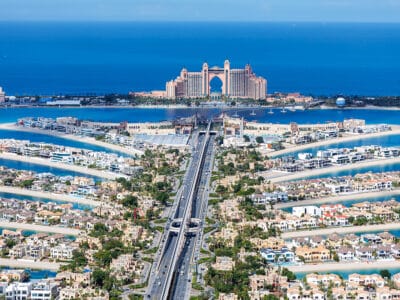For a company that prides itself on being the “biggest travel company in the Middle East” — the tag is etched across the door of its headquarters in Bur Dubai — Kanoo Travel keeps fairly low key about its achievements day-to-day.
But it’s behind this quiet exterior that some grand ambitions are bubbling away — after all you don’t become the region’s number one TMC by standing still. The constant mission to stay one step ahead of its competition is what is driving the company forwards says regional travel director Sunil D’Souza: “Kanoo has been the trendsetter for many companies here; and we are conscious of the fact that when you are ahead of the pack, others follow,” he explains.
“That is a process that has been perpetually ongoing at Kanoo for many decades now. When you are the market leader and the largest TMC in the Middle East you always need to re-discover yourself, and ensure that you progress on the path ahead.”
So what exactly are Kanoo Travel’s plans for “staying ahead of the pack”? The company currently operates a network of 143 offices across the Middle East and Europe, — but “growth is on” for Kanoo Travel, says D’Souza, and expansion is planned across the region throughout this year and the next.
D’Souza is the man charged with managing the “five major growth markets” of the UAE, Oman, Qatar, Iraq and Afghanistan.
“Markets such as Qatar, Iraq, and also the UAE will have our primary focus in the coming years because the tangent of growth there is quite high.”
He singles out Iraq as being the biggest area of opportunity for Kanoo Travel over the coming few years. The company has already launched two offices there and is planning further expansion into Southern Iraq later this year.
“We are looking at Iraq as an area of major growth for the business — both northern and southern. We have been working with contractors in Iraq and servicing them from here but now that the volume of business has gone up that has prompted us to provide people with a more personalised level of service which can only happen when you’re on the ground,” explains D’Souza.
“We had already made inroads into these markets. We were in Baghdad before the conflict erupted but we moved out for the safety of our staff. Now we are just waiting for the situation to calm down in Southern Iraq before we send in staff.”
And then there’s Afghanistan, where Kanoo is also looking to “bolster its presence”. It may seem fairly suprising that any travel company would seek out opportunities in a war zone — after all who would want to travel there?
But the fact is that for every troop that goes into a war zone there are three support staff sent in behind them — and travel agencies required to arrange the secure passage of people in and out.
Is it safe though? “You have to go where the business is,” says D’Souza. And he assures me that Kanoo Travel conducts thorough assessments before placing staff on the ground in potentially precarious situations. “We are operating out of Camp Bagram in Afghanistan which is quite safe, it has highly-equipped security in place to protect the occupants.
“We don’t force people to go there,” he adds. “It’s not like someone will get transferred to Afghanistan with no choice. We have options available for all the staff and once we are assured of the safety of the situation only then do we put people on the ground.”
While Kanoo Travel is clearly not afraid of taking some risks for the expansion of the business — what about the ongoing political situation in the Middle East? Has this dampened any enthusiasm for region expansion? D’souza describes the situation as “under control”.
“In terms of the Middle East crisis — yes, it had an impact, we had a downtrend in travel volumes. But that only lasted about two or three weeks and now things are back to normal.”
“At the moment it’s under control and manageable and I don’t see too much disruption in traffic. But I hope we won’t have much more political disruption in the Middle East,” he admits.
It’s been a year of crises in the travel industry, but D’Souza points out that the various disasters have in fact allowed Kanoo Travel to play to its major strengths as a corporate TMC — which is crisis management.
When the earthquake and tsumani struck in Japan in March, Kanoo immediately evacuated around 15 clients. And when protests broke out in Egypt at the start of the year the company chartered aircraft for the emergency evacuation of clients in a 15-day operation that cost around AED 3.7 million. (US $1million).
“We set up an emergency response centre where we had a team of managers and staff who were responsible for bringing people safely back to their home countries.”
He adds: “In any eventuality, one of the most important things we observe is that companies are critical about the lives of their staff.”
Innovate to grow
So what are the biggest challenges ahead for Kanoo Travel? D’Souza says this is to constantly innovate in order to keep pace with the changing demands of the travel sector.
“Business is growing and our territories are expanding. Our customers’ need to travel beyond the traditional frontiers have increased. Now they are looking at further regions and more time-sensitive projects.
“Working in Iraq, with oil companies for example requires you to be highly precise. It’s very time sensitive because if you miss the schedule these companies will incur a heavy cost.
“Also our customers are well-informed now, they are looking for more from us and service always has to be kept high; but they don’t want to compromise on cost. So this has added further challenges to travel companies. This is why we are re-aligning our service modules and our approaches.”
This translates as a tightening up on procedures at Kanoo. D’Souza has spoken out strongly in the past about what he sees as one of the biggest risks facing travel companies in Gulf — offering extended credit periods.
He believes this “risk is slowly diminishing” thanks to Kanoo pioneering the use of credit cards for its corporate customers, such as American Express BTA (Business Travel Account) cards.
“Kanoo is at the forefront in providing these credit solutions to our corporate clients. More and more customers from our end are taking up these cards, but the objective is to provide them to all our customers — because, at the end of the day, we are the ones who still need to make payments to airlines twice a month.”
Future expansion
Despite the challenges, D’Souza is positive that business is finally on the up for corporate travel — so much so that he predicts Kanoo Travel will “go beyond achieving its budgets this year to the tune of 20 -30%.”
“Things are looking brighter in the travel industry and our business is growing. We are signing more and more accounts so that’s a good indication of us coming out of the woods after the recession. I am optimistic and hopeful that 2011 will be a good year after the lull of the past few years.”
And for the future growth of Kanoo Travel, it seems anything is possible.
With 22 branches in the UK, as well as some in France, Kanoo is already making a name for itself beyond GCC borders — a trend which D’Souza says will continue. “We are looking at Kanoo Travel being a truly global company.”
He refuses to give too much away, but hints that the company is currently eyeing up various investments and acquisitions in a bid to further enhance the travel offering.
“When it comes to acquisitions and investments there are a number of things you can do. Whenever it makes commercial sense for us to acquire and grow, our company will seek out those partnerships.”
Just last month, for example, the Kanoo Group launched the company’s first hotel ever hotel — the K Hotel, in Bahrain.
So what about a Kanoo Travel Airline, could this be next up on the cards?
“Well, why not? That could be a reality in the next couple of years. We don’t have plans as of right now to start an airline but I don’t rule out any good possibilities in the future.
“It is subject to the owner’s discretion and their plans and ideas,” he continues. “And when the time is right they will decide on whether to start an airline, or even launch some more hotels.”
“The coming decade will offer a lot of opportunity to expand,” says D’Souza. “We just have to ride the crest.”







